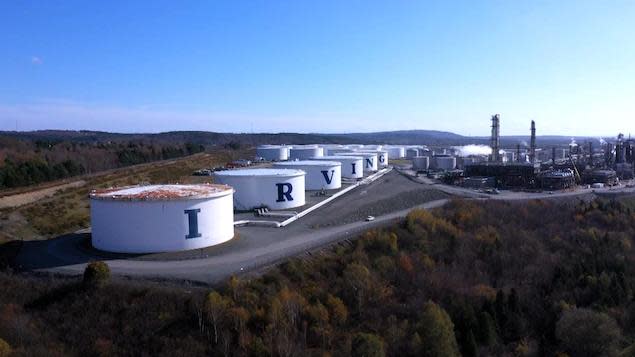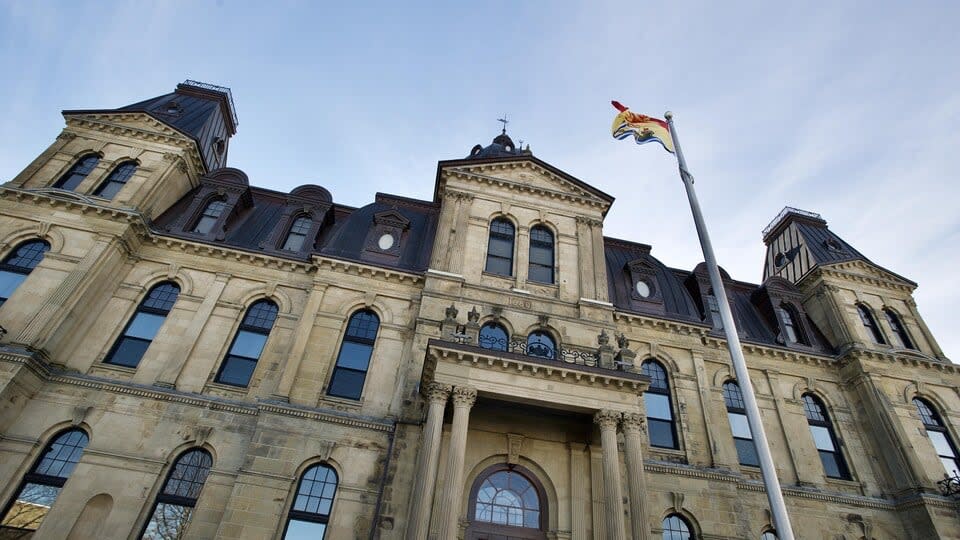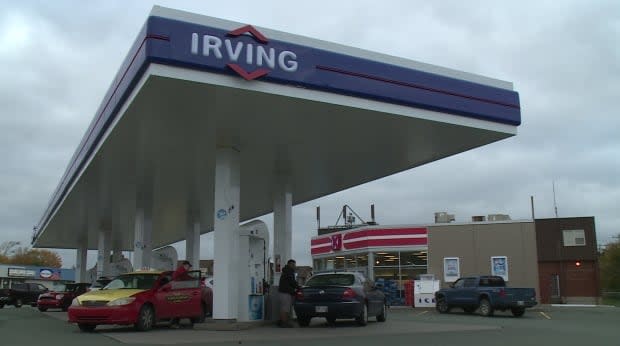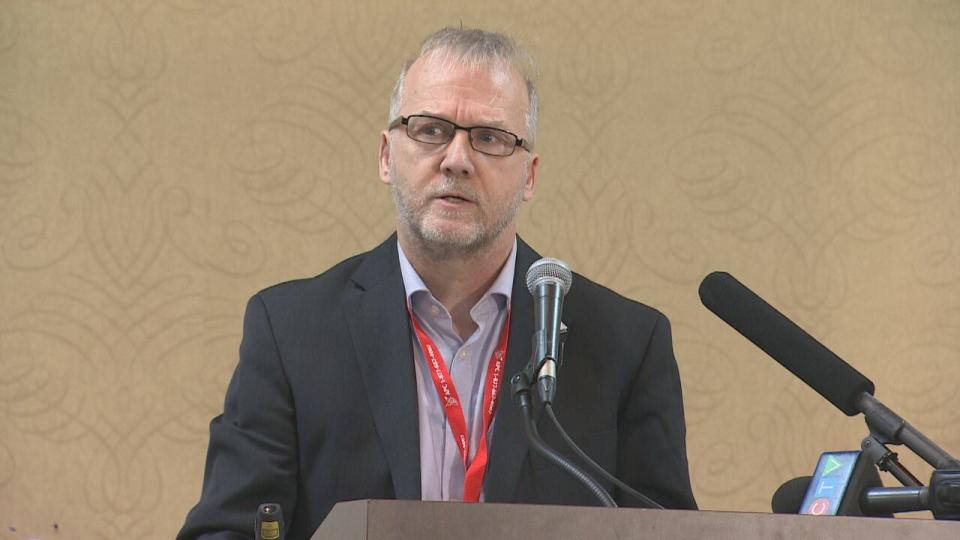Irving refinery can survive low-emissions future, report says

Irving Oil's Saint John refinery could have a viable future in a low-carbon world as long as policymakers recognize the facility's importance to Canada, a new report says.
The report by the Atlantic Provinces Economic Council says the refinery, Canada's largest, is a major player in the economy and faces uncertainty as Canada aims to achieve net-zero fossil fuel emissions by 2050.
Irving's investments averaging $200 million a year in refinery upgrades over the last two decades suggest "it is a profitable refinery that should be able to navigate the net-zero transition," says the report.
But federal clean fuel regulations that are out of sync with provincial emissions policies create a risk that oil refining will shift to other countries with less stringent emissions policies, the study adds.
The New Brunswick government also needs to step in with incentives to support a shift to hydrogen, biofuels and other lower-emitting technologies, it says.

The report says the provincial government must step in with incentives as the industry shifts. (Guy LeBlanc/Radio-Canada)
"This region cannot afford to lose its last remaining refinery due to competitive issues and a lack of provincial supports. This region has higher per capita fuel use relative to the rest of Canada. Imported fuel would be costlier."
Another policy option is a "carbon border adjustment mechanism" — a federal tariff on imported oil that isn't considered as cleanly extracted as Canadian oil – to level the playing field for the refinery, which must compete with operations where there is no price on carbon.
The study comes in the midst of a strategic review that Irving Oil says could lead to a full or partial sale of the company.
Premier Blaine Higgs has suggested the review is due in part to federal clean fuel regulations that exclude Irving's exports to the United States – 80 per cent of its output – from eligibility for clean-fuel credits the company could sell.
Irving Oil did not respond to a request for comment on the APEC report.
The document points out New Brunswick's carbon pricing system for heavy industry applies to Irving's refinery products sold both domestically and internationally, while Ottawa's regulations only cover what is sold in Canada.

The report came out as Irving Oil is completing an internal review that is considering a full or partial sale of the company. (CBC News file photo)
"Navigating compliance with these policies can be complicated and time consuming, potentially leading to increased expenses, particularly in administrative costs," the report says.
"Vague rules and ineligibility for certain clean energy investments can act as net-zero transition deterrent."
The report assumes that the push for net-zero emissions – in which any remaining fossil fuel emissions in Canada are offset by technologies that remove carbon dioxide from the atmosphere – will continue.
Federal Conservative leader Pierre Poilievre has promised to eliminate the federal carbon tax, a cornerstone of the current government's climate policy, if elected.
But the report's author, APEC senior policy analyst Fred Bergman, says Irving Oil plans beyond short-term election cycles and would account for a post-Poilievre government bringing back stringer emissions policies.
"Elections come and go every five years," he says.
"They're investing for 20 years or more typically on these large capital investments."
The report notes that most experts project that fuel demand will decline over time, raising doubts about the future of the refining sector.
But losing the Saint John refiner would make the country more dependent on imports, harming Canada's energy security and leading to higher gas prices.

The report's author, Fred Bergman, says Irving Oil is looking far into the future, and even if a Conservative government under Polivre eliminates the carbon tax, a future Liberal government might reinstate it. (Paul Poirier/CBC)
The refinery accounts for 17 per cent of Canada's total refining capacity.
That's why Irving "will need to make significant investments to comply with net-zero policies, including investing in low-carbon fuels, energy efficiency and renewables," it says.
The company announced a partnership with TC Energy in 2021 to reduce emissions through new technologies including hydrogen, and also signed a contract in 2023 to import emissions-negative natural gas from biowaste in the U.S. to help power its operations.
Those initiatives could help reduce the refinery's carbon intensity – the amount it emits per barrel of oil it refines.
The report says it "appears feasible" for Irving to convert to low-carbon fuels but governments can help with more clean-energy tax credits.
The report says Irving's refining operations are responsible for 2,440 jobs through its supply chain. The refinery accounts for about half the dollar value of the province's exports.
It also emits about 25 per cent of New Brunswick's total greenhouse gas emissions. The company is aiming to reduce emissions from its refining process to 30 per cent below 2005 levels by 2030.
There were only 15 oil refineries in Canada in 2023, down from 40 in the 1970s.


